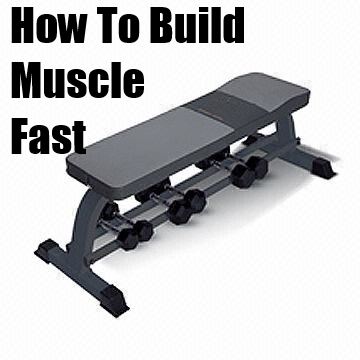Keep making muscle gains, never stop gaining muscle. While there are literally hundreds and thousands of muscle-building strategies circulating on the Web at any given time, whether they are capable of producing reliable gains or results is another matter.
Many, in fact, don’t and leave the aspiring body-builder/ trainee more disappointed and confused than anything. It’s also not uncommon for these strategies to be conflicting in nature, especially when they come from different sources.

So inevitably, the question arises as to what courses of action, workouts, diet plans, amount of recovery is capable of producing reliable muscle gains, and keep making muscle gains.
The truth of the matter is that one can build a ripped, chiseled physique without so much as opening a modern-day muscle magazine, with its overpriced supplements and ever-changing ‘best workout for X or Y body part’ and so on.
The following is a summary of the most effective and surprisingly overlooked principles needed to ensure reliable, fail-safe muscle growth:
Keep Making Muscle Gains Tips
Avoid Overtraining: That’s right and it (overtraining) occurs more frequently than most people would care to admit. Unless you’re in the final phase of training for a contest, say goodbye to the 1 hour-long gym sessions and the 6-day training regimen. ‘More’ is not necessarily better when it comes to reliably packing on pounds of muscle.
Plus, as you’ll later learn, training less frequently, and for shorter periods will actually leave you in better position to do what actually needs to be done, i.e. training with intensity! This is the first and I think most important tip to keep making muscle gains
Alter Your Eating Habits to Suit Your New Regimen: The old adage ‘you are what you eat’ is true on a number of levels when it comes to building muscle. For most of the skinny fellows out there, this will involve greatly increasing the amount of calories that they consume. In fact, people are often astounded at the increments they are told are needed in their calorie consumption, to reliably keep making muscle gains.
The trick is to do it piecemeal. It’s naive to assume that one can make gains on a Spartan diet, but it’s equally foolish to assume that one can go from the average couch potato’s consumption-levels to that of an experienced body-builder, in one week. Equally, important as the quantity, is the quality of one’s calories.
Needless to say, there is a huge difference between eating 3000 calories of donuts, and other highly processed junk food, and eating 3000 calories of high-quality fats, proteins and carbohydrates. One will promote muscle gain at a reliable rate and the other will simply lead to sluggishness, laziness and a useless build-up of ’empty calories’.
Train With Intensity: This is possibly the most valuable piece of advice that for anyone who wants to build muscle. Yet, it also remains the least implemented. The average gym-goer, nowadays, chooses to do the same exercise with roughly the same number of reps and sets, over and over again.
After a while, he/ she simply grows tired of the fact that no more gains are being made (after the initial ones) and simply gives up on the idea altogether. High intensity training is what triggers muscle growth.
It does this by signalling to the body that more muscle fibre is needed to cope with the body’s growing demands. While there are many ways to measure this intensity, one good rule of thumb is to ensure that you are lifting weights above 80% of your 1-rep Maximum.
A carefully crafted, high intensity training regimen will keep the muscles adapting structurally and neurologically, and thereby ensuring you keep making muscle gains.
Track Your Progress: Finally, one of the most overlooked, yet also one of the most useful strategies for ensuring reliable, sustained muscle growth. There is a tendency to lose track of the gains one has made because they all occur so gradually that they’re not immediately noticeable.
This can often lead to decreased motivation as well as stagnancy in training regimes. Keeping a diary which tracks both muscle gains as well as strength gains, on the other hand, can help put a trainee’s progress into perspective and keep his/her motivation levels high.
It can also be used as a tool to inform one about when and whether changes need to be made to the training or diet regimen. For instance, if the gains eventually slow down on one meal plan, we can conclude that it’s time to move on to the next one.
Overtraining Kills Muscle Gains
Adhering to these principles of avoiding overtraining, orienting one’s calorie intake to one’s activity levels, training with high intensity should greatly enhance the reliability with which ANYONE can keep making muscle gains.
Remember that overtraining will not only hurt you in the gym but also your rest and re
So if you are having trouble to keep making muscle gains look often at the tips above




